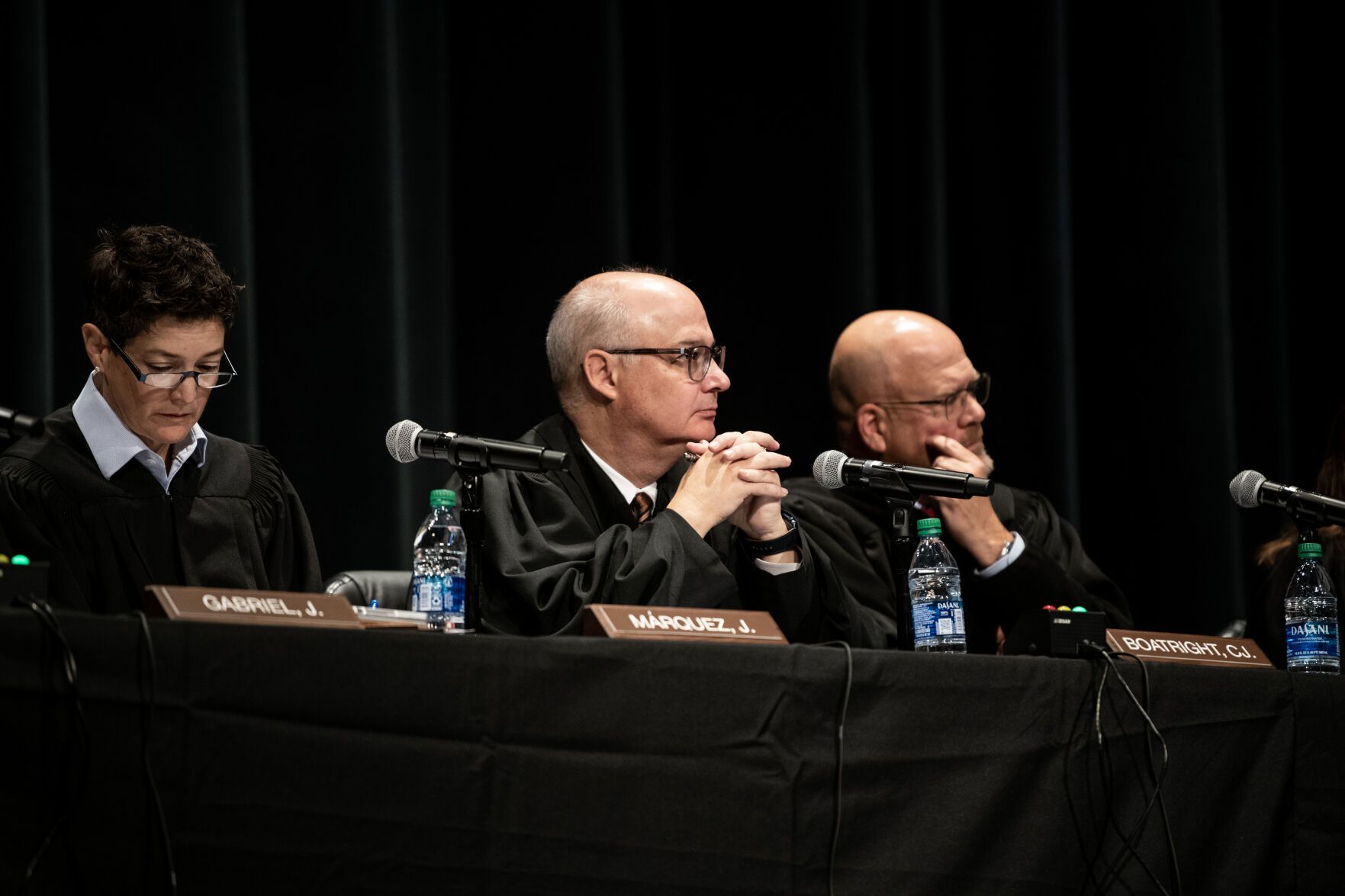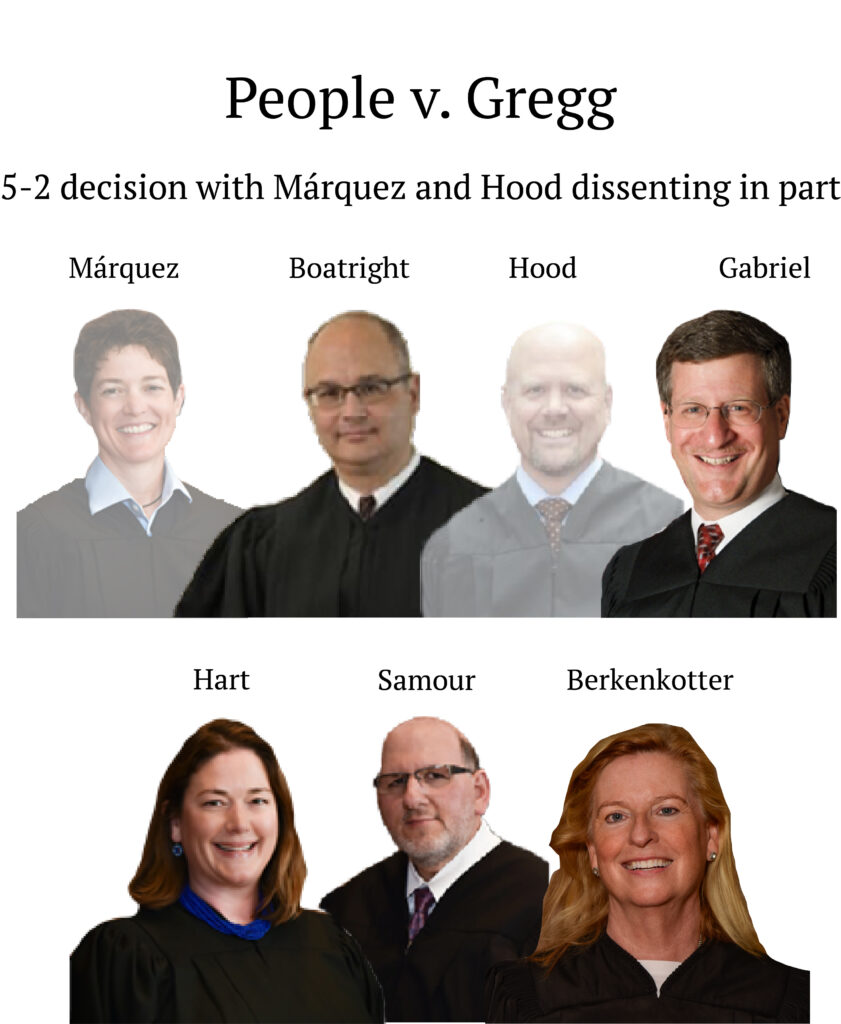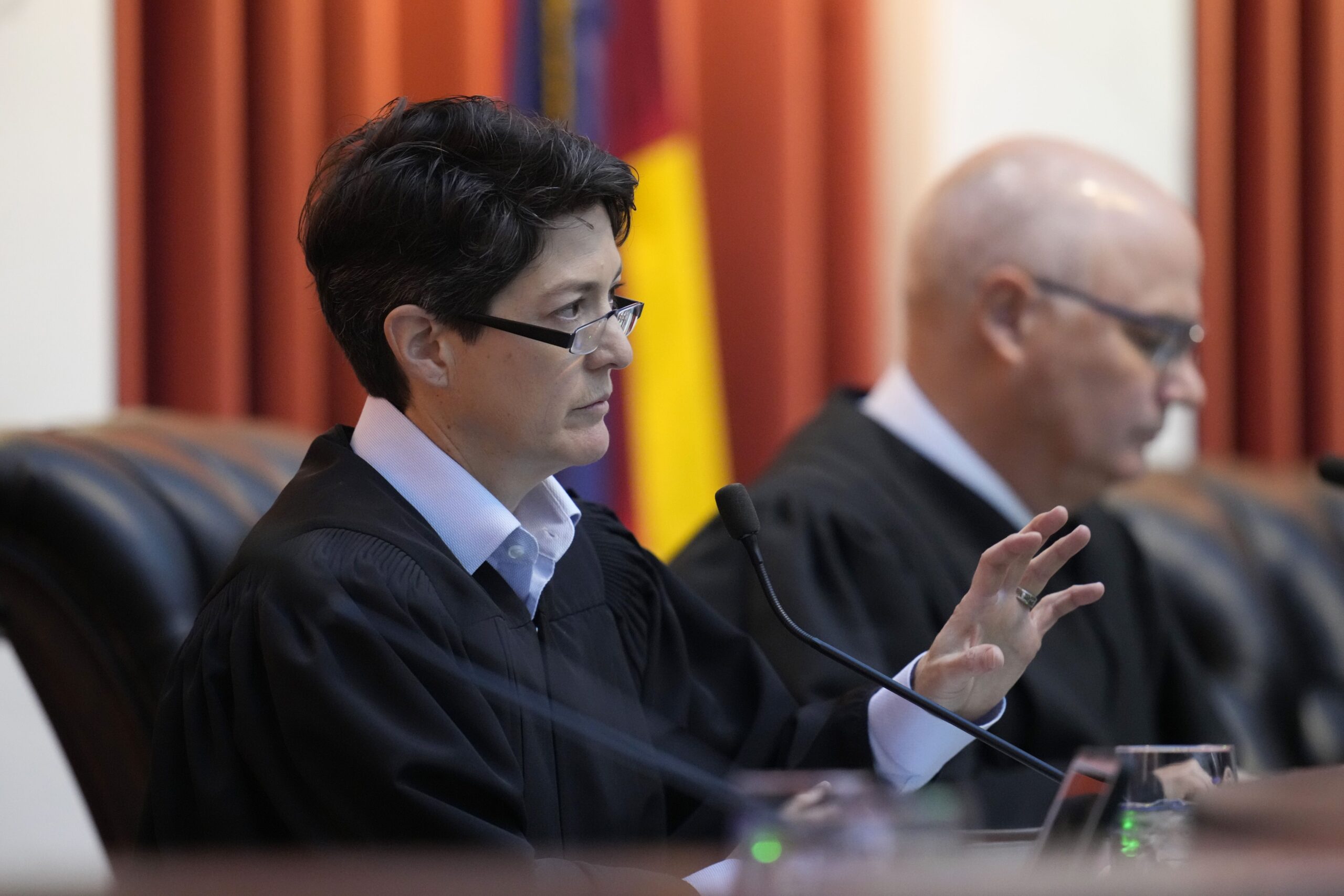Colorado justices, 5-2, conclude prior version of ‘3 strikes’ law satisfied Constitution

The state’s highest court ruled on Monday that the version of Colorado’s “three strikes” law that was in effect before this year was constitutionally compliant, notwithstanding a recent U.S. Supreme Court decision that prompted the legislature to change how defendants are sentenced.
Known as the Habitual Criminal Act, Colorado’s law requires judges to impose three or four times the maximum sentence if a defendant is convicted of a felony and has multiple prior felonies. However, those prior convictions must arise “out of separate and distinct criminal episodes.” Before 1995, juries made that determination, but that year lawmakers changed the law to entrust judges with the task.
Even with that understanding, the Colorado Supreme Court concluded, by 5-2, the version of the law that existed until earlier this year still provided room for juries to determine if a defendant had multiple, distinct priors. Therefore, there was no inherent constitutional problem.
“(W)hile the former habitual criminal sentencing statute instructed ‘the trial judge’ to determine ‘whether the defendant has been convicted as alleged,'” wrote Justice Brian D. Boatright in the Sept. 29 opinion, “it did not explicitly prohibit the jury from finding that those prior convictions stemmed from separate and distinct criminal episodes.”

Chief Justice Monica M. Márquez dissented, believing the pre-2025 language in no way envisioned that juries would decide the existence of a defendant’s priors.
“Moreover, today’s opinion suggests that a court may salvage an otherwise unconstitutional statute as long as it articulates some conceivable, constitutional interpretation of the offending provision, however divorced from its actual language,” she wrote for herself and Justice William W. Hood III.
All parties to the case agreed that a 2024 U.S. Supreme Court decision called into question Colorado’s method of enhancing defendants’ sentences under the three strikes law. By 6-3, the justices ruled in Erlinger v. United States that the U.S. Constitution requires juries to decide beyond a reasonable doubt whether a defendant committed prior felonies on separate occasions.
At the time the Erlinger decision dropped, a Mesa County jury had recently convicted Andrew Gregg of two felonies and one misdemeanor. Prosecutors alleged Gregg should be sentenced as a habitual criminal because he had four prior robbery convictions — but the priors were not part of the jury’s verdict.
After Erlinger and in anticipation of Gregg’s sentencing, the defense moved to dismiss the habitual criminal counts because Gregg disputed whether three of his prior convictions were from “separate and distinct” episodes. The prosecution conceded Erlinger meant such questions could no longer be decided by judges after the jury’s verdict. But it argued a “replacement jury” could determine whether Gregg qualified as a habitual criminal.
District Court Judge Matthew D. Barrett believed there could be no further proceedings on the habitual criminal allegations. He invoked the constitutional prohibition on double jeopardy, reasoning that case law prohibited him from assembling another jury after the prosecution already had the chance to prove its allegations beyond a reasonable doubt.

The district attorney’s office appealed directly to the state Supreme Court, and numerous outside entities weighed in. The Colorado Attorney General’s Office and Colorado District Attorneys’ Council suggested there was a way to comply both with Erlinger and the law as written: Judges can either retain the jury or assemble a new one to decide whether a defendant qualifies as a habitual criminal. If the jury says yes, the judge can double check the verdict, given that the law requires at least some level of judicial involvement.
On the other hand, the public defender’s office, Colorado Criminal Defense Bar and the ACLU of Colorado, among other groups, argued the court should strike down the state’s law entirely and let the legislature figure out what to do next. Shortly after oral arguments, the General Assembly did revise the three strikes law to clarify that juries must be involved.
However, the change only applied going forward. It did not address what should happen to cases like Gregg’s that were not conducted in compliance with Erlinger.
The Supreme Court’s majority adopted the prosecution’s view of how the pre-2025 law did, at least in theory, make room for a jury.
“If the court determines that the jury’s findings are supported by sufficient evidence, then it will enter the judgment and thereby satisfy the sentencing statute,” wrote Boatright. “Because this procedure complies with Erlinger, we hold that Colorado’s former habitual criminal sentencing statute is not facially unconstitutional.”

Márquez, in dissent, argued the most logical move was to strike down the portion of the law requiring trial judges to be the decision-makers about prior convictions. She noted the General Assembly clearly understood the existing law needed to be modified to comply with the U.S. Supreme Court’s decision.
“I cannot support rewriting the statute to add a jury trial followed by judicial review under a process that was not contemplated by the legislature,” Márquez wrote.
All members of the court agreed that, in a circumstance like Gregg’s, judges were allowed to assemble a second jury to consider his habitual sentence without running afoul of double jeopardy.
It was unclear how the state Supreme Court’s opinion will affect defendants whose habitual sentences pre-Erlinger are currently on appeal, or who are eligible to seek postconviction relief based on the U.S. Supreme Court’s decision. The entities that submitted briefs in Gregg’s case either declined to comment or did not immediately respond to questions from Colorado Politics.
Gregg’s case marked the fifth time Márquez dissented in less than a month. Since the court’s 2025-2026 term officially kicked off after Labor Day, Márquez is the only justice who has authored or joined every dissenting opinion.
The case is People v. Gregg.












